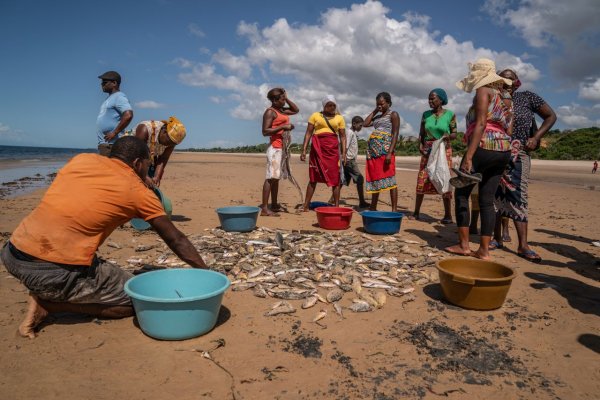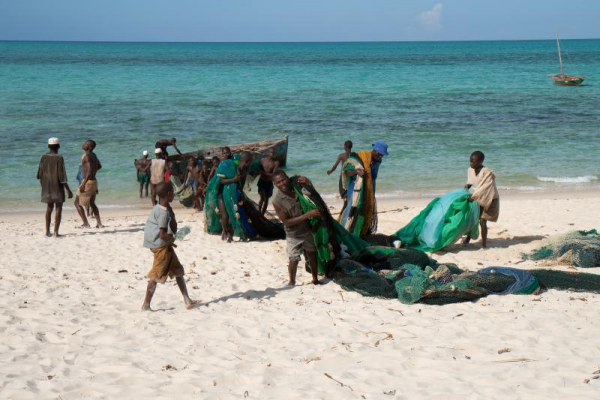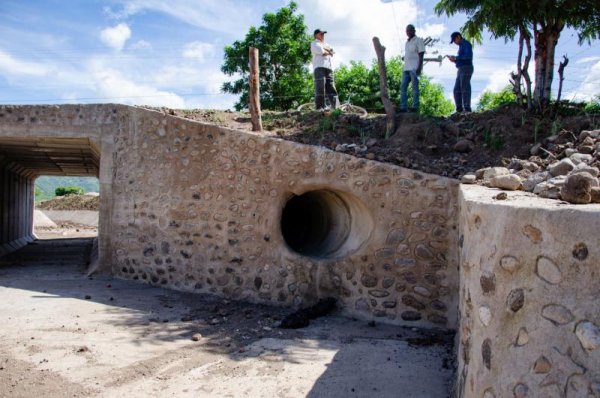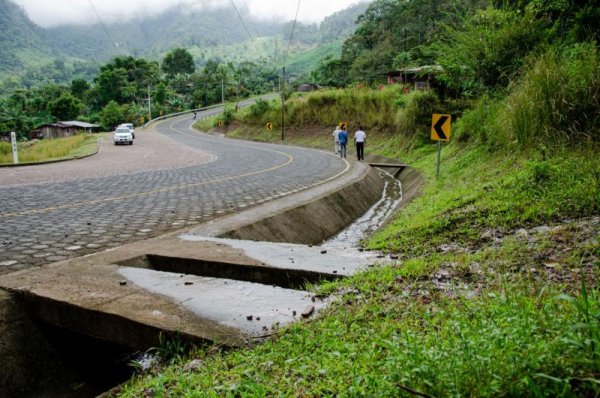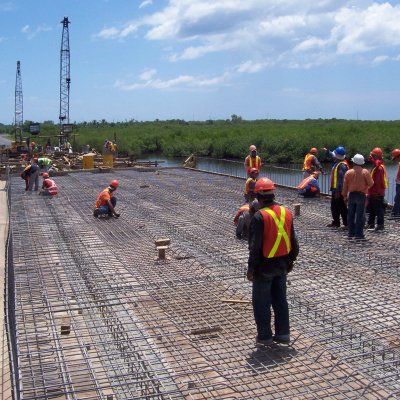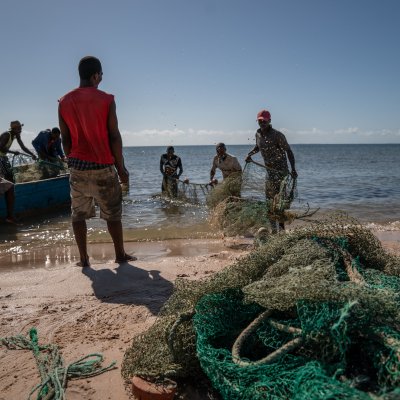Investments in climate-resilient development pays off
Final evaluation and lessons learned find positive impacts of investments in climate-resilient development in two recent projects in Mozambique and Nicaragua
Resilience and adaptive capacity of coastal community livelihoods enhanced in Mozambique
Coastal communities’ dependence on fisheries makes them particularly vulnerable, both ecologically and socially, to climate-related stresses on the nearshore environment. NDF, together with the World Bank, financed the Artisanal Fisheries and Climate Change Project (FISHCC) to strengthen the climate-resilience of coastal fishing communities in Mozambique. Active between 2015–2019, FishCC focused on strengthening the local management of coastal resources by supporting fisheries’ councils and small-scale fishers—who currently produce 85% of Mozambique’s annual catch. One of the project’s greatest accomplishments was supporting the strengthening of these councils, which have demonstrated that co-management and community empowerment can be the catalyst to effective sustainable fisheries management.
The project, recently reviewed, succeeded in enhancing capacity and skills of fisheries sector staff and local communities that will be a valuable asset for future fisheries co-management initiatives in Mozambique. This progress was supported by successful revitalisation and training of community fisheries councils at each of the six target sites along the 2700 km coastline. In addition, the experience from FishCC sites helped to catalyse consideration and decision-making within the Ministry of Sea, Inland Waters and Fisheries (MIMAIP) as to the appropriate legal framework for designation of community fisheries management areas.
The project supported complementary livelihood initiatives and established access to credit in the six sites. The target communities gained access to essential materials, such as chest freezers and cold boxes for the value chain maintenance, and motorised boats to facilitate line-fishing offshore. At the start of the project, the community fishing councils were non-functional at the six sites. By the end of the project, membership of fishing councils is above 90% as a result of training and targeted organisational activities, electronic registration and ID cards. Overall, the project reached 2,700 direct beneficiaries, both women and men.
The technical assistance provided by the international NGO RARE Conservation followed the strategy of their Fish Forever program. Although there were delays in project implementation mainly due to a complete reorganisation of the Fisheries Ministry MIMAIP and its decentralisation process, the project achieved positive results and the work continues today continue today under the World Bank SWIOFISH program and other funding from Sweden and Germany.
The Fish Forever approach proved to be effective in providing a platform for community engagement and systematic problem analysis. A local campaign manager, who helped develop systematic theory-of-change frameworks, led the work at each of the six sites. This process enabled clear, targeted management strategies and performance measure to improve sustainable fisheries production. However, by the end of the project, none of the no-take reserves under community management areas had been formally designated, and implementation had only been initiated at one site. This highlights how important prompt mapping, demarcation and implementation are for transparency and maintaining confidence and common understanding.
Despite delays and challenges, sufficient progress was made during the project to generate a wealth of valuable lessons for future similar work on developing fisheries co-management in Mozambique. For example, a policy on preferential access rights for local fishers needs to be developed, as these rights are an important tool in addressing open-access pressures on fisheries, not least because they encourage local stewardship. In addition, it is necessary to take into account that some community fisheries management areas will incorporate more than one community fishing council since fishing grounds are heavily shared. This highlights the importance of conducting systematic mapping of fishing patterns and community consultations over broader areas, to help guide what should be the optimal scope and boundaries of a management area.
NDF provided a grant of EUR 4.0 million to the FishCC Project, while the World Bank and MIMIAP implemented the project in the period 2016-19 with technical assistance and co-financing from the international NGO RARE, and selected provincial and district authorities.
Knowledge gaps in road infrastructure development close in Nicaragua
NDF financed a special component of the Road Sector Support Program, completed last year, aimed at building adaptive capacity for climate change in the road infrastructure sector in Nicaragua. A final evaluation rated the project as highly satisfactory; the project not only raised individual capacity and institutional awareness of climate change vulnerability within the Ministry of Transportation and Infrastructure (MTI) and other organisations, but also provided them with skills, updated technical and methodological instruments for planning and decision-making. These improvements have enabled them to increase performance levels. At the project completion, Nicaragua possesses climate scenarios for the next 30 years providing information on potential climate change impacts in the infrastructure sector.
The project directly benefited 457 officials of MTI and other organisations including private sector companies through workshops and hands-on training that built awareness and developed institutional capacity to incorporate climate change adaptation in all phases of road infrastructure projects. In addition, 32 officials participated in special Postgraduate and Master’s courses developed by national universities. All training activities built on a detailed institutional strengthening plan developed through a comprehensive training needs assessment.
The project undertook a vulnerability mapping of the national road system and identified almost 300 vulnerable hot spots in the road system. A tool was developed to prioritise the hot spots and 30 sites were selected for further studies and design of critical climate-resilient solutions. NDF financed three pilot projects addressing different types of climate vulnerabilities and providing climate change-resilient road infrastructure. The plan is to have the World Bank and other financiers finance the civil works for building climate-resilient solutions in the remaining hot spot sites.
The Nicaraguan road design and maintenance instruments (standards, design manuals, policies and legal instruments) now have climate change aspects incorporated. Twelve instruments are revised and updated and three new manuals prepared.
Extreme events related to climate change have significant impacts on all social and economic sectors in Nicaragua, transport being one of the most affected sectors. Nicaragua has one of the lowest road densities per person in Latin America and its road infrastructure is vulnerable to climate change, especially from severe rainfall events. The economic and social impacts are often substantial, mainly through disruption and loss of access due to damage to roads and bridges.
The MTI implemented the Project “Development of Adaptive Capacity for Climate Change in the Transport Sector”, which was funded by an NDF grant of EUR 4.4 million, with the objective of supporting component 4 of the Transportation Sector Support Program (PAST), funded by a credit from the Inter-American Development Bank (IADB).
For more information:
Lessons from FISHCC 2015-19, Mozambique
Lessons from FISHCC 2015-19, Mozambique (Portuguese version)
Climate Resilient Transport in Nicaragua Publication
World Bank Blog: Four lessons learned from fishing communities in Mozambique

